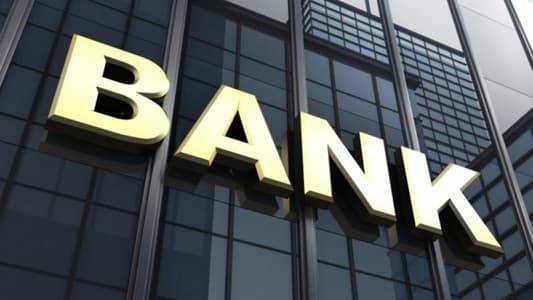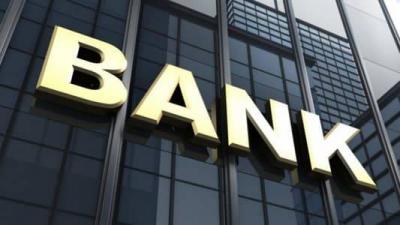The movements on the first day of the open general strike being undertaken by Lebanese banks were limited to a meeting between caretaker Prime Minister Najib Mikati and a delegation from the Board of Directors of the Association of Banks. The delegation presented a series of positions and observations regarding legal and professional issues, which led the general assembly to decide to limit daily operations to managing liquidity via ATMs, without staff attending their offices.
Expectations varied among multiple banking sources contacted by "Asharq Al-Awsat," but there was a consensus on continuing the strike until concrete steps are taken that translate the promises being conveyed to bankers by senior officials in both legislative and executive authorities. This suggests that normal activities will likely not resume during the current week, especially since tomorrow, Thursday, coincides with a public holiday in all public and private institutions.
With a near unanimous mandate from the general assembly, the board of the association is seeking to establish tight controls that correspond to the severity of the exceptional and complex situations faced by the financial sector in managing its requirements and repercussions, within the limited capabilities of the Central Bank of Lebanon and the banking system alike, while also considering the rights of all parties involved, including depositors, investors, and shareholders.
A banking official confirmed to "Asharq Al-Awsat" that the balance of justice cannot be maintained with repeated requests to disclose banking secrecy outside the official mechanism assigned to the Special Investigation Commission. Additionally, there is an issue regarding final rulings in favor of individuals that lead to them being allocated a significant portion of the available daily cash liquidity. Furthermore, it is not acceptable to suspend payment instruments—such as the bank checks issued in favor of those requesting them—while banks are obliged to accept loan repayments from the same or other customers through this payment method.
Indeed, banks have requested the state to legislate an "accelerated law that completely and retroactively abolishes banking secrecy, allowing banks to provide banking information on all their customers' accounts, especially to those managing them, their shareholders, and others, since the account opening date, to any judicial authorities, thus ending the mockery of accusations and suspicions against them and their shareholders."
The banks also stressed that failure to recognize checks—especially bank checks—as a legal means of payment, and allowing execution against the drawer even before proving the check's non-collection and the lack of funds, regardless of its being against the law, would confine transactions to cash payments. This forces banks to reciprocate and not accept debt repayments from debtors except in cash and in the same currency, while banks are required to accept checks in Lebanese pounds for settling debts, even the ones issued in foreign currency, applying the same rule differently based on the presenter and beneficiary.
Additionally, the Association's delegation extensively discussed with Mikati the issue of disclosing banking information retroactively to certain "judicial" authorities regarding entire segments of society, which does not only pertain to the management of banks. They were informed verbally that this disclosure would extend to employee categories, meaning anyone involved with the public sector, without any justification or specification, targeting information leaks from these disclosures that could be exploited.
The banks also indicated in their statements that the rising trend in the use of cash, almost exclusively for most financial and banking transactions, puts them under scrutiny from international regulatory bodies and raises concerns among correspondent banks they deal with, particularly regarding the US dollar, and what it signifies for the US Treasury and banks in America. This is the most impactful issue on the flow of external financial transactions.
Banks are concerned about the risks of ignoring the warnings from regional and international regulatory institutions, which caution against continuing to immerse in the expansion of cash transactions at the expense of traditional and electronic alternative payment tools that are precisely documented and examined through banking controls, particularly regarding compliance with "Know Your Customer" rules, ensuring that suspicious financial operations do not occur.




